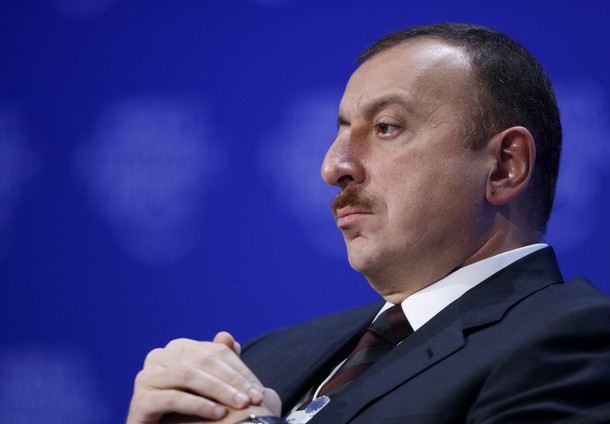
From Peter Rutland, the Moscow Times: Three years after the Russia-Georgia armed conflict, war clouds are again gathering in the Caucasus.
Already deadlocked for years, the peace negotiations between Armenia and Azerbaijan hit a brick wall on June 24 in Kazan, when a much-anticipated peace summit broke up without agreement. President Dmitry Medvedev had put his personal authority behind the talks, having personally convened nine previous meetings between the two leaders over the past two years.
Now, there is increasing talk of war — a war that would be presumably started by Azerbaijan in a bid to regain the province of Karabakh and the surrounding districts that were seized by Armenian forces during the war from 1992 to 1994. Armenia argues that the Armenian residents of Karabakh have a right to independence and that it is unrealistic to expect Armenians to live as a minority under Azerbaijan’s rule given the history of animosity between the two sides. Each side cites atrocities against civilians committed by their adversary during a conflict that erupted in 1988. . . .
Azerbaijan’s president, Ilham Aliyev, has repeatedly stated that independence for Karabakh is non-negotiable, so Armenia’s reticence about moving ahead with the peace process is understandable. Why is Aliyev continuing to negotiate in the face of Armenian intransigence? If Aliyev can convince the international community that Armenia is blocking the Madrid Principles, that could give him some political cover for launching a war. Aliyev claims that time is on Baku’s side, since Armenia’s population is shrinking due to its stagnant economy, while Azerbaijan is booming thanks to its oil wealth. But Aliyev faces re-election in 2013, and keeping the lid on the opposition will be more difficult absent some progress on Karabakh. In addition, starting in 2014, Azerbaijan’s oil production will be past its peak, and revenues will start to fall.
Even some liberals are saying that a short war — a war in which neither side would probably achieve victory — could clear the way for real negotiations. The model is the 1973 Yom Kippur war, which Egyptian President Anwar Sadat claimed as a victory and which opened the door to the Camp David peace talks.
More important, an indecisive war would discredit the hawks on both sides, enabling peacemakers to strike a bargain without facing a coup when they returned home. Azerbaijan’s gross domestic product is five times that of Armenia, and Baku spent $3 billion in 2010 on its military, more than Armenia’s entire budget. But Armenia has taken delivery of sophisticated Russian hardware, including the S-300 air defense system and is home to a Russian military base housing 5,000 troops, whose tenure was extended last year through 2044.
Peter Rutland is professor of government at Wesleyan University in Middletown, Connecticut. (photo: Reuters)
Image: reuters%207%2028%2011%20Ilham%20Aliyev.jpg
